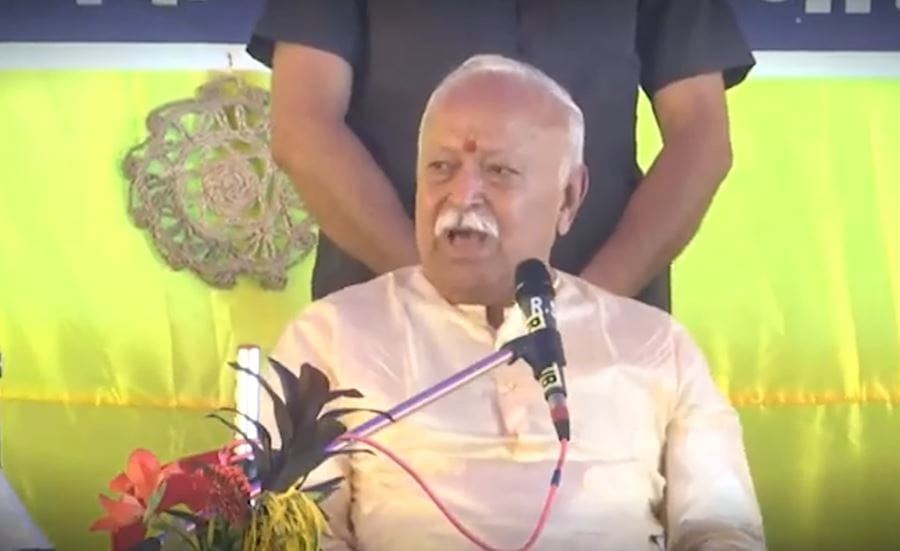Overview
On September 2, 2024, the Rashtriya Swayamsevak Sangh (RSS) articulated its position on the contentious issue of caste census, emphasizing that while such a census can be beneficial for the welfare of marginalized communities, it must not be leveraged for electoral advantages. This statement came amid heightened political discourse and internal party dynamics, highlighting the RSS’s commitment to national unity and social justice.
RSS’s Position on Caste Census
The caste census, a subject of intense debate in Indian politics, has seen varying opinions from different political and social groups. Sunil Ambekar, the RSS’s national media-in-charge, addressed the media during the conclusion of a significant three-day coordination committee meeting held in Palakkad. Ambekar underscored the sensitivity surrounding caste issues within Hindu society and stressed the importance of handling the caste census with utmost seriousness, avoiding its exploitation for political gain.
“So, it should be dealt with very seriously not just on the basis of electioneering or election practices or politics,” Ambekar remarked, pointing out the necessity of cautious handling of the caste census. He clarified that while the RSS supports the census for the purpose of ensuring targeted welfare for disadvantaged communities, it must not become a political tool. This stance aligns with the RSS’s broader mission of prioritizing national unity and social welfare over partisan interests.
Recent Developments in the Caste Census Debate
The call for a caste census has gained momentum in recent times, with several opposition leaders and parties advocating for its implementation to better address the needs of various social groups. Last week, the Parliamentary Committee on the Welfare of Other Backward Classes included the caste census in its agenda for the year ahead. This inclusion reflects the increasing pressure from various quarters to conduct a comprehensive enumeration of caste data.
Rahul Gandhi, a prominent Congress leader, has also championed the caste census, arguing that it will be foundational for equitable policy-making and effective resource allocation. His support for the census reflects broader demands from several opposition members and social activists who believe that accurate caste data is essential for addressing historical injustices and promoting social equity.
Internal Dynamics Within the RSS and BJP
The RSS’s statement also comes in the wake of recent remarks by Bharatiya Janata Party (BJP) chief J.P. Nadda, who suggested that the party no longer needs the RSS’s ideological guidance. This comment reportedly unsettled many RSS volunteers and sparked internal discussions about the relationship between the RSS and its political affiliate, the BJP.
Ambekar dismissed concerns about the tensions between the RSS and BJP as a “family matter,” emphasizing that such issues would be resolved internally. He assured that the RSS’s mission remains focused on national priorities and that the organization’s recent meetings, including the one in Palakkad, have been productive and collaborative. The Palakkad meeting was notably the first occasion where Nadda and RSS chief Mohan Bhagwat met since the controversy over Nadda’s comments.
Concerns Over Violence Against Women
During the Palakkad meeting, the RSS also expressed deep concern over recent incidents of violence against women, including a highly publicized case involving the rape of a doctor at R.G. Kar Medical College in West Bengal. Ambekar highlighted the RSS’s commitment to addressing such issues, advocating for a review of existing laws and the establishment of fast-track courts to expedite justice for victims.
Ambekar noted that violence against women is a critical issue that requires a comprehensive legal and societal response. He urged for stricter measures and better enforcement to prevent such heinous crimes and ensure swift justice. Additionally, he mentioned that certain harmful content on social media and the internet has been linked to criminal behavior, calling for greater regulation to mitigate its impact on society.
Waqf Bill and Property Management Concerns
Addressing questions related to the Waqf Bill, Ambekar acknowledged concerns about the mismanagement of Waqf properties. The issue has been raised not only by RSS affiliates but also by Muslim community members. The Waqf Bill, currently under review by the Joint Parliamentary Committee, seeks to address these concerns and improve the oversight and management of Waqf properties.
Ambekar assured that the government is attentive to these concerns and that feedback from various community representatives, including those affiliated with the RSS, will be considered in the final legislative process. This approach reflects the RSS’s commitment to addressing communal and administrative issues through constructive dialogue and legislative reform.
Conclusion: Navigating Complex Issues with a Focus on Welfare
The RSS’s recent statements and positions on the caste census, internal party dynamics, and social issues highlight its ongoing engagement with critical national topics. By emphasizing the need for the caste census to focus on welfare rather than electoral politics, and addressing concerns about violence against women and Waqf property management, the RSS aims to reinforce its role as a significant player in Indian socio-political discourse.
As the debate over the caste census continues, it will be crucial for all stakeholders to balance the need for accurate data with the imperative to avoid its misuse for political ends. The RSS’s stance underscores a broader commitment to addressing social inequalities while maintaining the integrity of political processes.
Soumya Smruti Sahoo is a seasoned journalist with extensive experience in both international and Indian news writing. With a sharp analytical mind and a dedication to uncovering the truth, Soumya has built a reputation for delivering in-depth, well-researched articles that provide readers with a clear understanding of complex global and domestic issues. Her work reflects a deep commitment to journalistic integrity, making her a trusted source for accurate and insightful news coverage.



